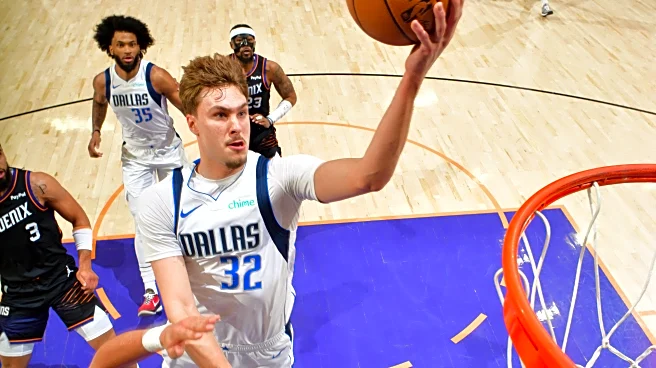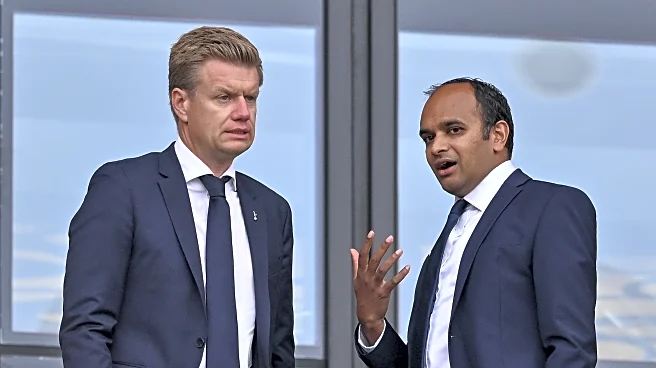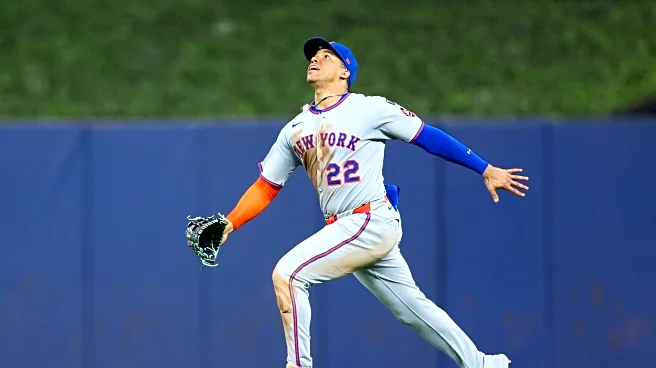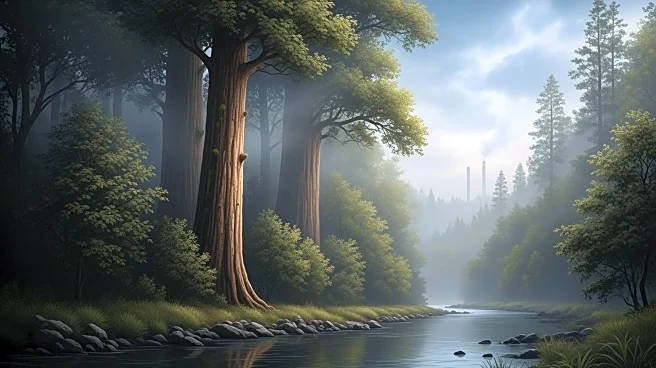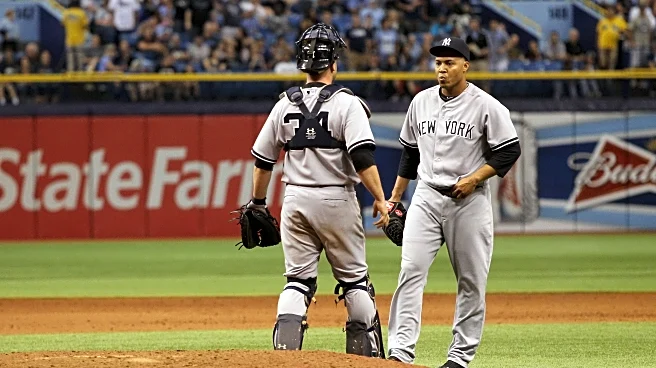Rapid Read • 8 min read
A wave of millennial nostalgia is sweeping through pop culture, marked by the resurgence of iconic figures and entertainment from the late 1990s and early 2000s. The Backstreet Boys are performing to sold-out crowds, while Lindsay Lohan stars in a new 'Freaky Friday' movie. Former 'Dawson's Creek' co-stars Katie Holmes and Joshua Jackson have been spotted filming a new project in New York City. This trend is seen as a form of escapism for millennials, who are revisiting a time when their biggest concerns were simpler, such as buying CDs. The nostalgia is also resonating with Gen Z, who are romanticizing millennial culture on platforms like TikTok.
AD
The resurgence of millennial-focused entertainment highlights the generation's longing for simpler times amidst current societal pressures. This trend is not only a cultural phenomenon but also a lucrative opportunity for the entertainment industry, as evidenced by the success of Adam Sandler's 'Happy Gilmore 2,' which achieved Netflix's largest U.S. film opening ever. The nostalgia wave is bridging generational gaps, with Gen Z embracing millennial culture, potentially influencing future entertainment trends and marketing strategies. This cultural shift underscores the power of nostalgia in shaping consumer behavior and media consumption.
The entertainment industry is likely to continue capitalizing on millennial nostalgia, with more sequels, prequels, and spinoffs of popular titles from the 1990s and 2000s. Artists from that era, such as Nelly and Creed, are launching tours, and Hollywood is green-lighting projects that tap into this sentiment. As millennials and Gen Z continue to engage with nostalgic content, studios and artists may explore new ways to blend past and present cultural elements, potentially leading to innovative entertainment formats and collaborations.
The millennial nostalgia trend may have deeper implications for societal attitudes towards technology and information. As millennials straddle two distinct eras, their engagement with nostalgic content could reflect a desire to reconcile the rapid technological changes they have experienced. This cultural movement might also influence how future generations perceive and interact with digital media, potentially fostering a more inclusive and empathetic online environment.
AD
More Stories You Might Enjoy
